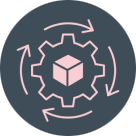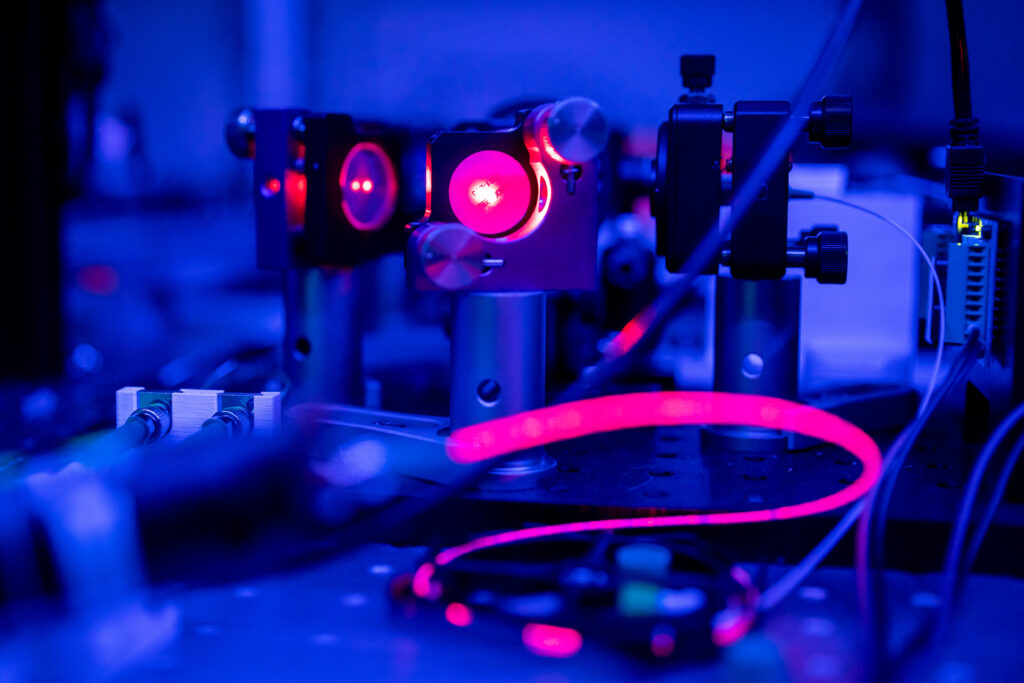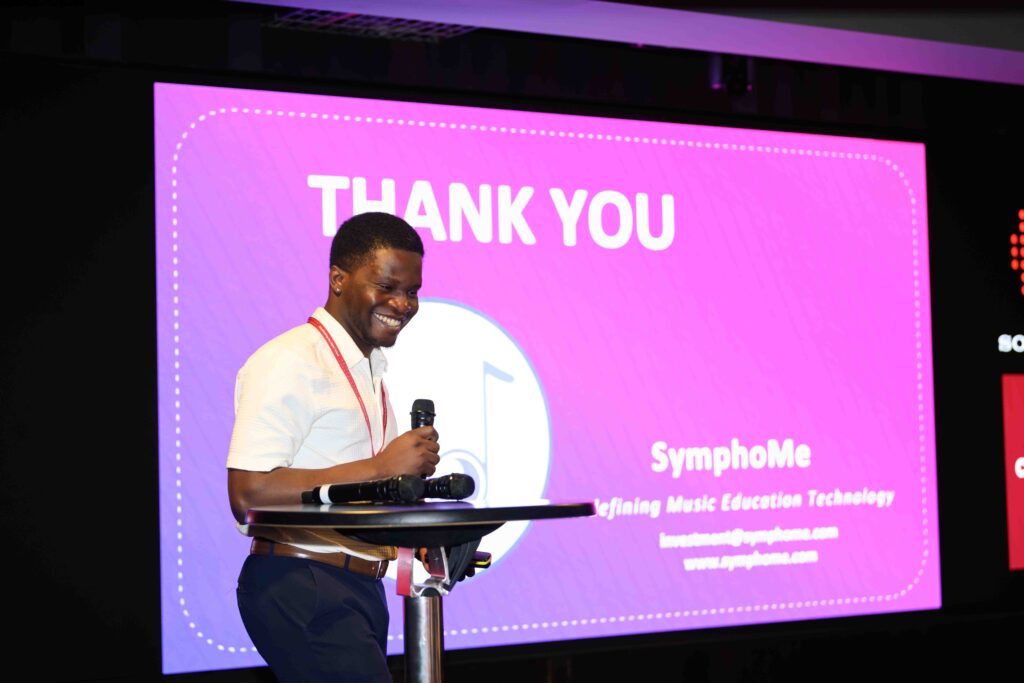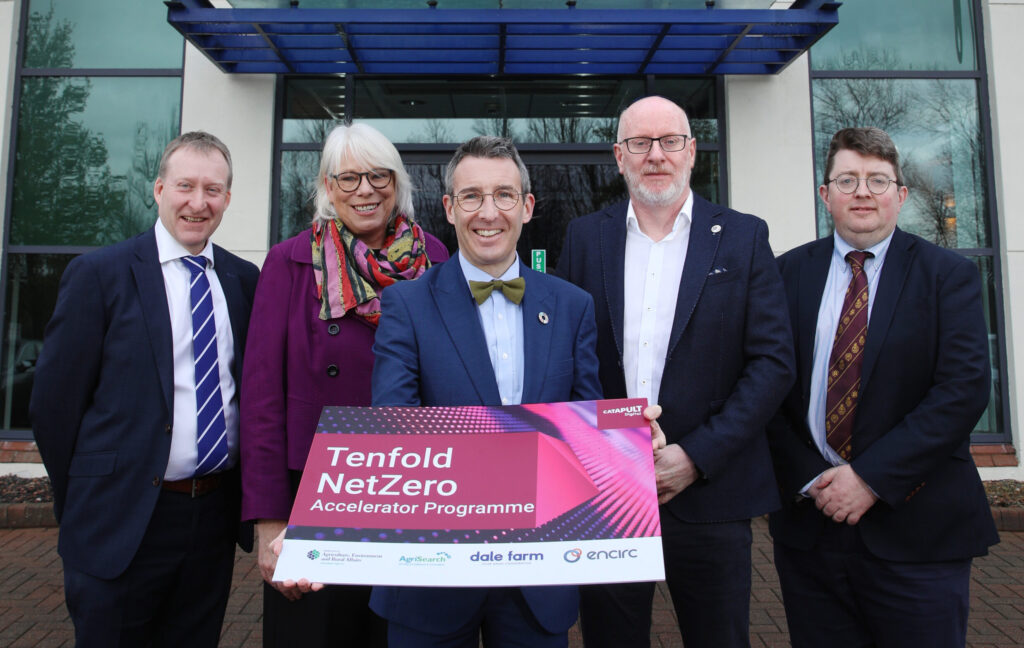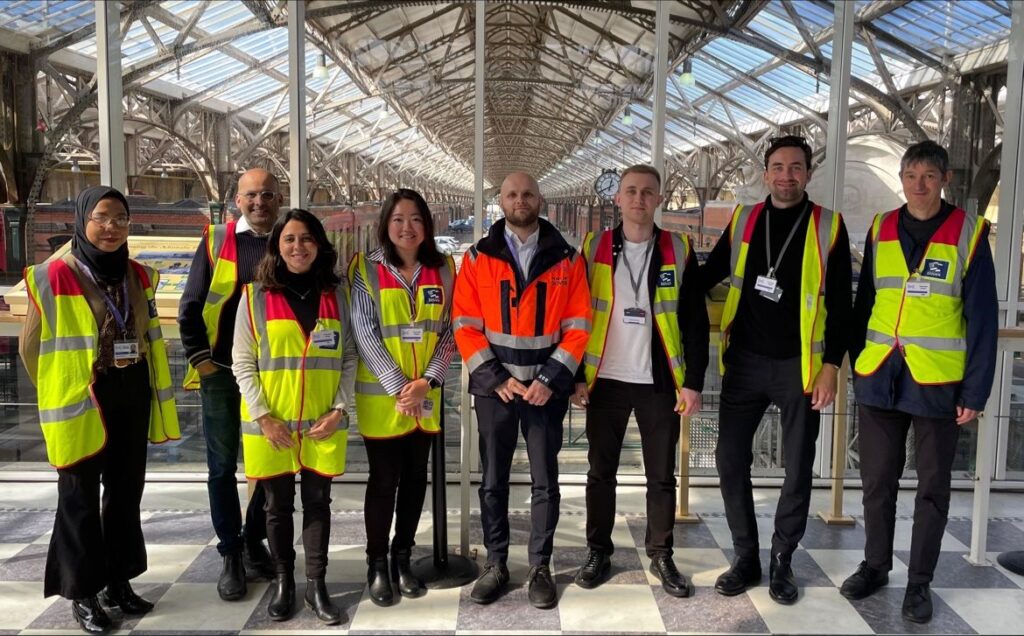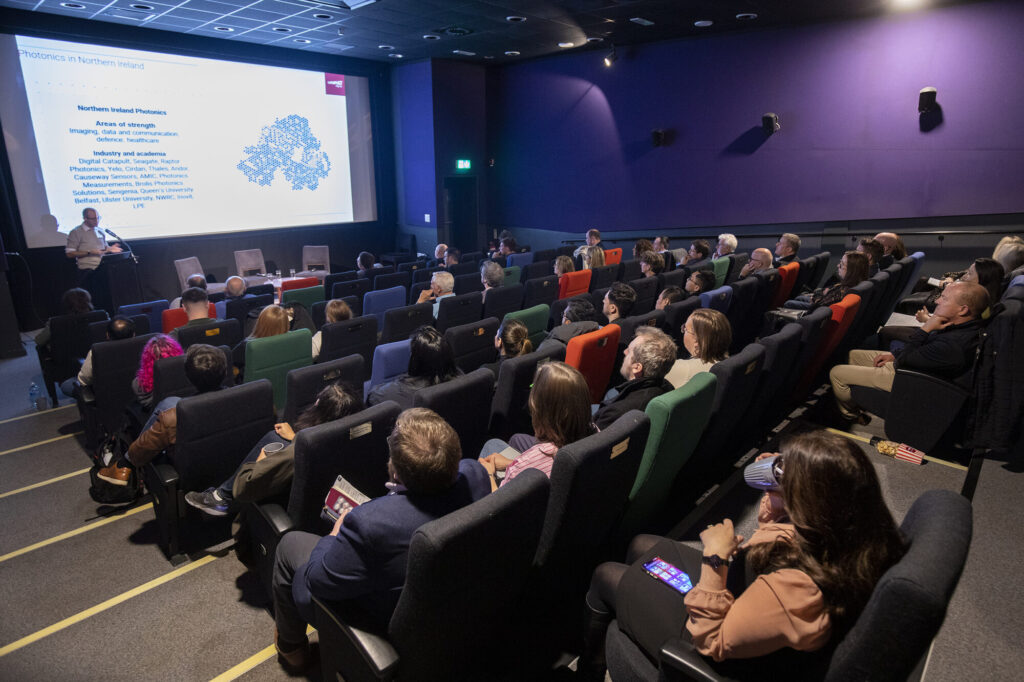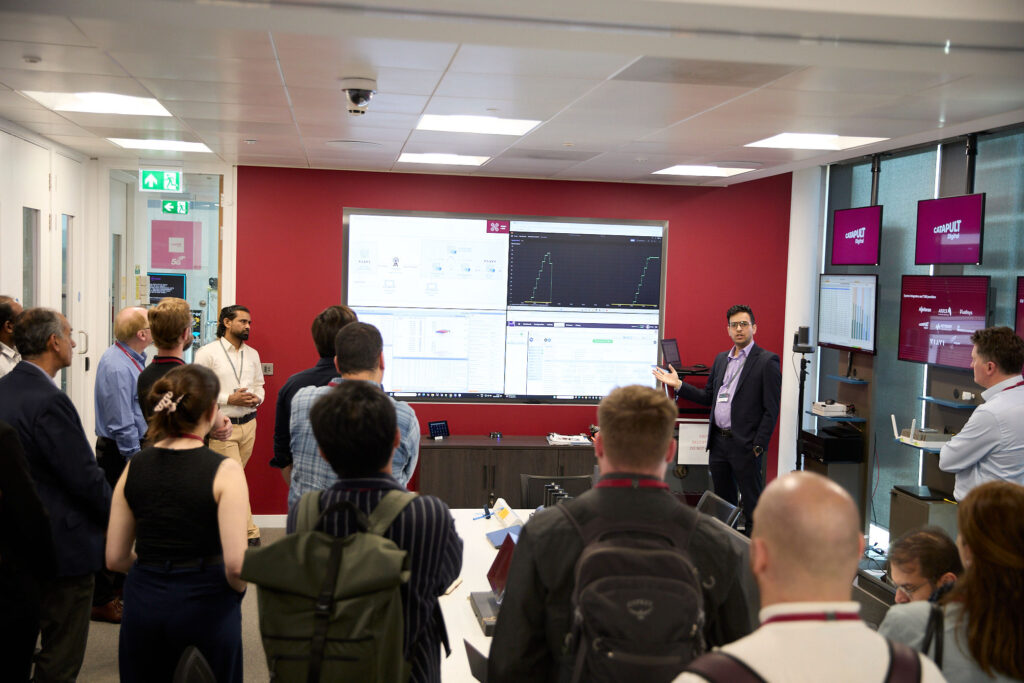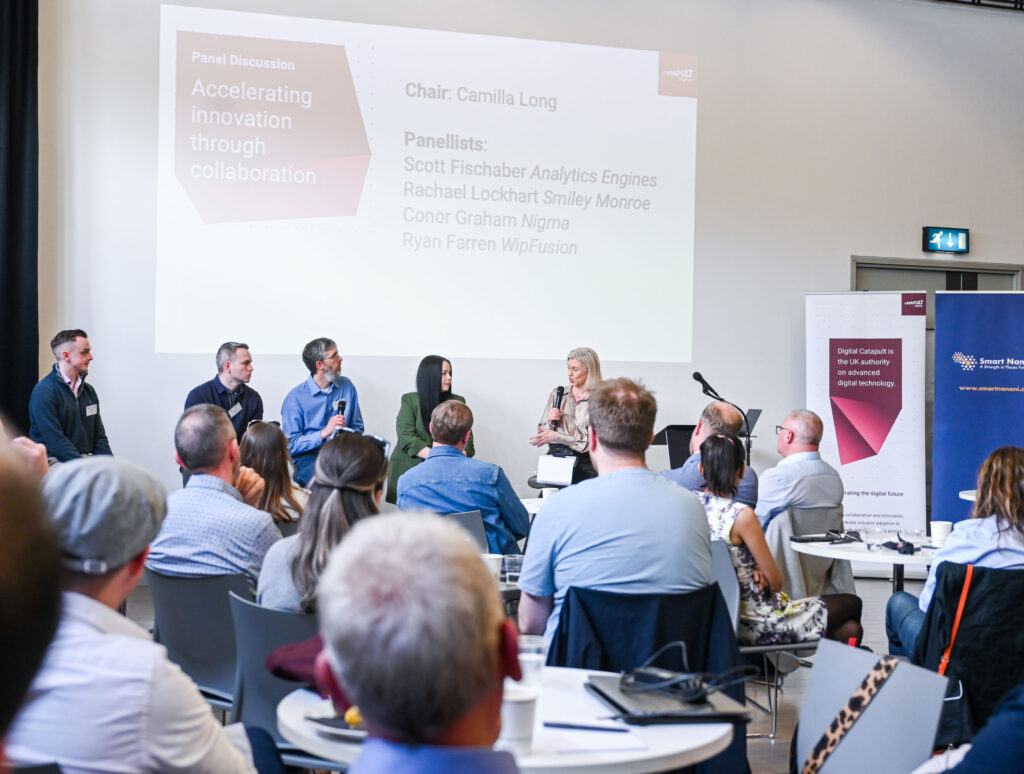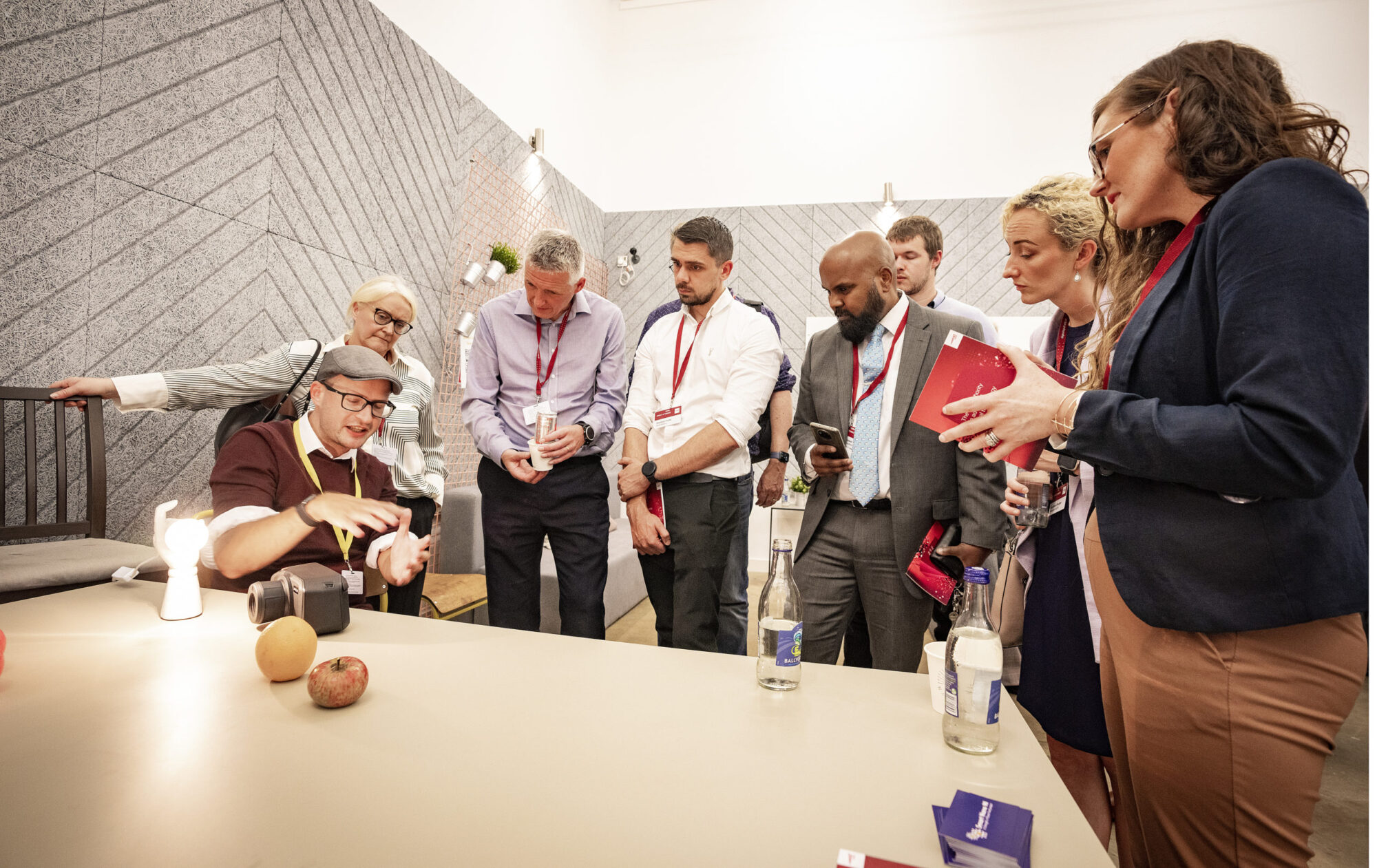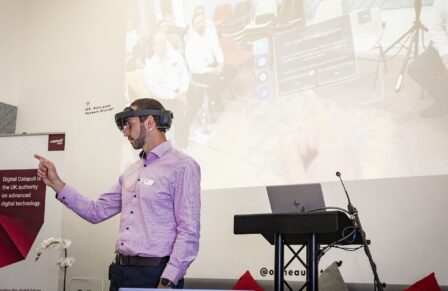Dr. Cillian McPolin is a photonics technologist at Digital Catapult, focused on advancing the adoption of light-based technologies.
What is Photonics?
Photonics is the science and technology of light and underpins much of our modern technology. Light-based technologies are ubiquitous: from smartphone screens to car headlamps, medical instruments to the internet, modern society fundamentally relies on our ability to control light. Photonics allows us to generate, transmit, manipulate, and detect light, thus enabling many key innovations.
A blossoming market
The industry that has developed around photonics is considerable: the photonics output in the UK has been estimated to be £14.5 billion in 2020, employing 76,700 people, underscoring its value to the UK economy. Moreover, photonic components can be thought of as two categories: fundamental photonic components such as lasers and LEDs, and photonics-enabled devices and products, such as smartphones and displays. The latter is evidently an extremely sizable sector – the global value of light-enabled products and services is estimated to be $7–10 trillion annually, approximately 11% of the world’s economy. This highlights how photonics is crucial to economic growth, supporting a wide array of industries, including lighting, defence, communication, energy, healthcare, food, and transport.
Light-based technologies for manufacturing
The manufacturing sector in particular benefits immensely from photonics – light is commonly used to cut and pattern materials, but it can also provide crucial information on the state of equipment and products. Thus, photonics can be divided into two key areas with regards to manufacturing: direct manufacturing and monitoring of manufacturing.
Utilising photonics in combination with the other advanced digital technologies, including the Internet of Things (IoT), Artificial Intelligence, Distributed Systems, Immersive technologies, and 5G connectivity, enables intelligent, data-driven, manufacturing – also known as ‘smart manufacturing’. Critically, smart manufacturing allows data to be collected, transmitted, and acted upon quickly, thus enabling agile, optimised production. This is crucial in a world where we are often dealing with unprecedented and global shocks to supply chains.
Laser precision
Lasers are a workhorse of manufacturing due their power and flexibility, enabling precise control of cutting, milling, and drilling. In addition, light can be used for additive manufacturing, such as 3D printing, and to produce extremely small features. The semiconductor industry, for instance, is reliant on photolithography (a technique that uses light to create minute features) to pattern chips.
The utility and versatility of lasers for the manufacturing sector can be further augmented by making them more intelligent with AI. For example, a self-optimising laser beam that uses AI can adapt to changes in material, shape and thickness, allowing for reductions in waste and quicker production timelines. The ability of lasers to process an array of materials, including metals, plastics, glass, and ceramics, coupled with their speed, efficiency and precision, make them a go-to for many production processes.
Data collection using light
As previously mentioned, photonics technology can be used to directly monitor manufacturing processes, providing critical data of the state of products and the equipment. This includes a plethora of sensors for monitoring a wide array of parameters, such as temperature, quality, and position. The data that is generated by photonic sensors can be analysed in real-time, using AI to provide crucial insights for manufacturers. The ability to monitor products, particularly in the food and beverage industry, contributed to the reduction of waste and spoilage. These sensors, which can produce a significant volume of data, form part of the Industrial Internet of Things, which, for example, has the potential to connect information across the supply chain through the use of 5G technology.
Data transmission using light also provides many important benefits for manufacturers; for instance, optical fibres and LiFi offer advantages in terms of speed and security, respectively. Secure, real-time transmission allows for faster and more agile production processes – including automation, manufacturing according to demand rather than projections, predictive maintenance, and reduced downtime. This more agile, data-driven production process enabled by advanced digital technology – smart manufacturing – plays an important role in the creation of digital twins, a means of directly optimising production.
Imaging and sensing
Photonic components often provide crucial information on geometry, materials, and layout, as well as allowing us to probe specific quantities such as temperature and pressure. In general terms, we can think of photonic components in this regard in terms of imaging and sensing systems.
Vision systems combine imaging with analysis, allowing rapid inspection and assessment of the quality of products, hence facilitating automated classification and sorting. Photonic components also enable Lidar, provide vision for robots and cobots, and are key to AR and VR for training and remote access. Another powerful photonic technique is hyperspectral imaging, which provides significantly more spectral information compared to conventional cameras. This technique has broad applicability: it can be used in agriculture to check if plants are diseased; in construction for analysing materials; in the sorting of plastics for recycling; in the pharmaceutical industry for checking for impurities; and for monitoring of food quality.
The rapid detection of faulty equipment or production issues via a network of sensors is key to allowing manufacturers to remain competitive. Optical fibre sensors, in particular, provide a convenient means of locating problems, such as detecting leaks along pipelines – these sensors are advantageous for manufacturers due to their robust nature and their lack of susceptibility to interference. A wide array of parameters can be monitored using optical fibre sensors, including temperature and strain. In addition, measuring displacement and surface profiles, 3D scanning, analysing the size distribution of particles, and ranging are also routinely undertaken using photonic technologies; lasers are ideal for metrology, providing high accuracy measurements.
Photonics and nanomanufacturing
Nanomanufacturing is a set of processes that produces features with dimensions on the scale of nanometres (one nanometre is one billionth of a metre) in order to realise materials and structures with novel properties – nanotechnology. Photonics and nanotechnology are closely related: photonics is employed in nanomanufacturing, and nanomanufacturing is used in the production of photonic components.
Digital Catapult is a key member of the Smart Nano NI consortium, which is building on the unique strengths of the manufacturing sector in Northern Ireland to create an ecosystem for world-class photonics production and nanomanufacturing. The consortium includes significant industry and academic partners and is led by Seagate, a global leader in data storage – their new generation of hard drives incorporate nano photonics to enable high-density data storage. The consortium also includes: Yelo, a leading provider of testing equipment for photonic devices; Cirdan, which specialises in using photonic technologies to speed up patient diagnosis; and Causeway Sensors, which is utilising nanotechnology to accelerate drug development. Moreover, the next blog post will discuss nanotechnology and nanomanufacturing in more detail.
Applying photonics in practice
There is a plethora of photonic technologies that can be implemented in manufacturing, from sensors to intelligent lasers, thereby facilitating and augmenting production. In short, light can be used to both directly create products and monitor production, serving as a key enabling technology for smart manufacturing.
If you’d like to explore what photonics could do for your business, read up on how you could get involved in the Smart Manufacturing programme here.



